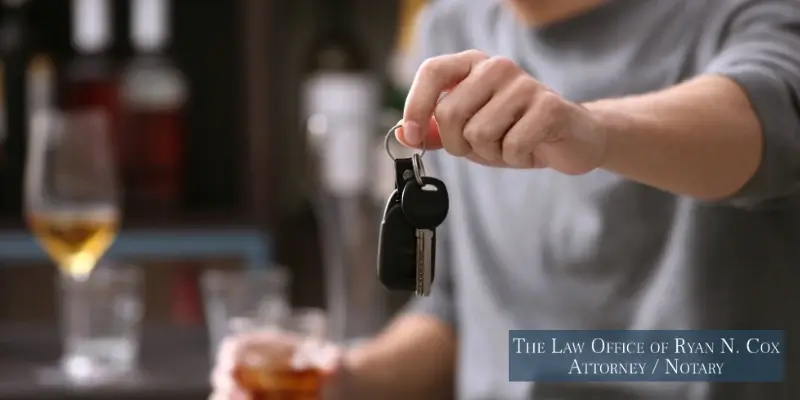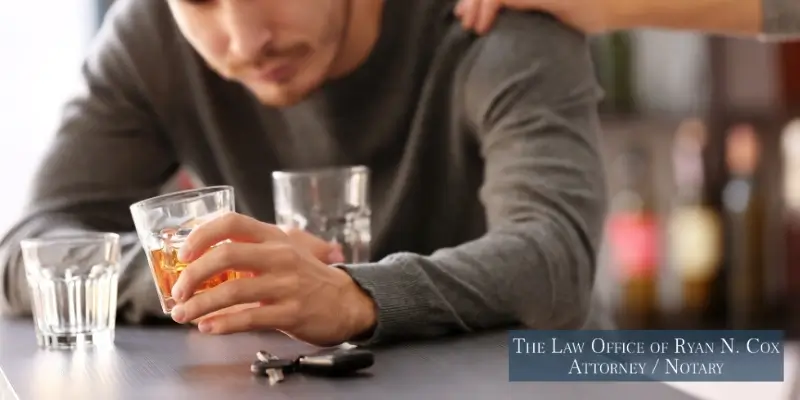Louisiana DWI Laws and Penalties

Louisiana DWI laws and penalties are often quite strict, and a charge can lead to serious consequences. Facing these accusations can feel like a heavy burden, but understanding the penalties associated with these charges can help ease some of the stress. Learn more about what to expect by speaking with a DWI lawyer. Learn more about what to expect by speaking with a compassionate Jefferson Parish DWI lawyer.
What Is a DWI?
In Louisiana, a DWI charge can also be called an OWI or operating while intoxicated. Generally, both terms are used to describe criminal charges assigned when a driver operates a vehicle under the influence of alcohol and/or drugs. The Louisiana DWI law does not require a driver to be visibly impaired and allows law enforcement to utilize breathalyzer tests to determine their blood alcohol concentration (BAC).
A driver can still be charged with a DWI, even if the BAC is below the legal limit. Field sobriety tests, officer observations, and tests provide evidence in these cases. The law also covers impairment due to legal substances, including prescription and over-the-counter medications. If a substance affects reaction time, coordination, or judgment, a DWI charge might apply.
Legal Penalties of a DWI
A DWI conviction or breathalyzer refusal results in a suspended driver’s license. The length of suspension depends on the offense and any prior violations. Some drivers might qualify for a hardship license, but not following these conditions might lead to an extended suspension or additional penalties.
The penalties for a DWI conviction in Louisiana increase with each offense. A first and second offense are misdemeanor charges, while a third offense becomes a felony. Penalties include jail time, fines, and license restrictions. In many cases, the court might also require an ignition interlock device (IID) during probation.
Implied Consent
Louisiana follows an implied consent law, meaning drivers agree to BAC testing when they obtain a license. Refusing a breathalyzer test carries penalties that are separate from a DWI conviction. This can result in a license suspension and does not guarantee avoiding a DWI charge because other evidence can be used instead.
Drivers under the legal drinking age face lower BAC limits and increased penalties. Courts often require underage offenders to attend alcohol education programs or perform community service. A DWI charge involving drugs does not require a specific BAC limit and includes any impairment due to drug use, regardless of what type of drug it is. Drug-related DWI convictions might involve additional criminal charges depending on the substance.
Consequences of a DWI Conviction
A DWI conviction creates ripple effects that extend far beyond the initial arrest and court proceedings, including things like:
- Criminal record. A DWI conviction normally remains on your criminal record, appearing in background checks and influencing how courts view any future legal matters. Repeat offenses trigger mandatory jail time and heavy fines.
- Employment issues. Many employers run driving record checks as part of their standard hiring process, and a DWI conviction often leads to an immediate rejection. Commercial driving positions become unavailable, and companies with strict safety policies might terminate current employees if they learn that they are convicted of a DWI.
- Insurance costs. Insurance companies can double or even triple premium rates after a DWI conviction, and these increases can last a long time after the conviction. Some drivers have to seek coverage from high-risk insurers at even steeper rates.
- Professional licenses. Professional licensing boards view DWI convictions as evidence of poor judgment and as a liability. Some professionals might lose certain privileges, face investigations, or even get their licenses suspended.
- Personal Consequences. The conviction can affect areas of life that are seemingly unrelated to the charges at hand, from apartment applications to loan approvals. Many landlords reject applicants with DWI records, while banks might deny mortgages or charge higher interest rates.
The extensive reach of a DWI conviction shows the importance of working with an effective DWI lawyer. These consequences can reshape your life, so it is essential to discuss your case with a legal professional to explore possible options.

FAQs About Louisiana DWI and Penalties Law
Q: What Is the Penalty for a First Offense DWI in Louisiana?
A: The penalty for a first-offense DWI in Louisiana varies, but it normally affects both driving privileges and legal standing. A conviction can result in fines, a suspended driver’s license, and possible jail time. The court might also require community service or participation in a substance abuse program. Additional penalties apply if there was a high blood alcohol concentration found or an accident that resulted from the DWI.
Q: Can a DWI Be Dismissed in Louisiana?
A: A DWI can be dismissed in Louisiana, but dismissal depends on the details of the case. Legal errors, lack of evidence, or procedural violations can weaken the prosecution’s case. Breathalyzer or field sobriety test results may be challenged if improperly conducted or maintained. The defense can also argue that law enforcement did not have a good enough reason to perform the traffic stop in the first place, which could lead to a dismissal.
Q: What Counts as Driving While Intoxicated in Louisiana?
A: What counts as driving while intoxicated in Louisiana includes operating a vehicle while impaired by alcohol, drugs, or a combination of both. The law sometimes uses the term OWI or operating while intoxicated instead. A blood alcohol content (BAC) of 0.08% or higher qualifies as intoxication for drivers over the legal drinking age. Impairment might not necessarily involve a specific BAC if other conditions are met.
Q: What Legal Defenses Exist for Someone Charged With DWI in Louisiana?
A: The legal defenses that exist for someone charged with DWI in Louisiana include law enforcement having a valid reason for stopping a driver. Additionally, breathalyzer and field sobriety tests have to follow strict procedures, and errors in the administration or calibration of the test or its equipment can make test results unreliable. Medical conditions, diet, or certain substances might also affect BAC readings.
Don’t Wait to Take Action
A strong defense can make a difference in DWI cases. Louisiana law allows room to challenge evidence, negotiate penalties, and fight for better results. Taking early action strengthens the chances of a favorable outcome. Schedule a consultation with The Law Office of Ryan N. Cox today to explore available options and the appropriate course of action.


